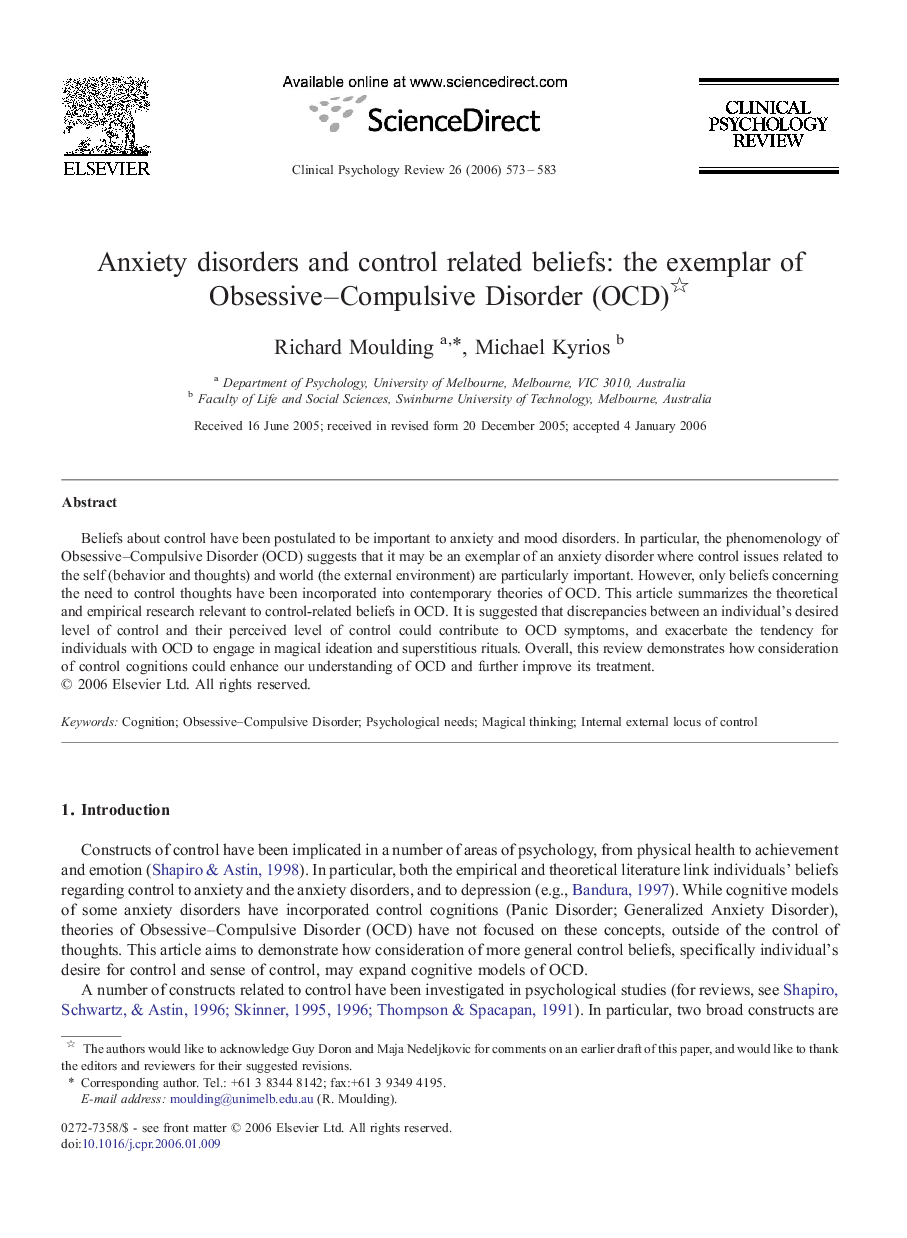| Article ID | Journal | Published Year | Pages | File Type |
|---|---|---|---|---|
| 904156 | Clinical Psychology Review | 2006 | 11 Pages |
Beliefs about control have been postulated to be important to anxiety and mood disorders. In particular, the phenomenology of Obsessive–Compulsive Disorder (OCD) suggests that it may be an exemplar of an anxiety disorder where control issues related to the self (behavior and thoughts) and world (the external environment) are particularly important. However, only beliefs concerning the need to control thoughts have been incorporated into contemporary theories of OCD. This article summarizes the theoretical and empirical research relevant to control-related beliefs in OCD. It is suggested that discrepancies between an individual's desired level of control and their perceived level of control could contribute to OCD symptoms, and exacerbate the tendency for individuals with OCD to engage in magical ideation and superstitious rituals. Overall, this review demonstrates how consideration of control cognitions could enhance our understanding of OCD and further improve its treatment.
